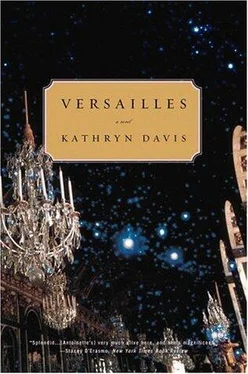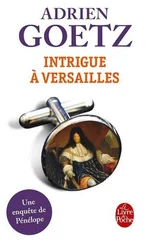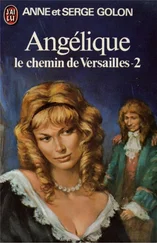Kathryn Davis - Versailles
Здесь есть возможность читать онлайн «Kathryn Davis - Versailles» весь текст электронной книги совершенно бесплатно (целиком полную версию без сокращений). В некоторых случаях можно слушать аудио, скачать через торрент в формате fb2 и присутствует краткое содержание. Год выпуска: 2003, Издательство: Back Bay Books, Жанр: Историческая проза, на английском языке. Описание произведения, (предисловие) а так же отзывы посетителей доступны на портале библиотеки ЛибКат.
- Название:Versailles
- Автор:
- Издательство:Back Bay Books
- Жанр:
- Год:2003
- ISBN:нет данных
- Рейтинг книги:4 / 5. Голосов: 1
-
Избранное:Добавить в избранное
- Отзывы:
-
Ваша оценка:
- 80
- 1
- 2
- 3
- 4
- 5
Versailles: краткое содержание, описание и аннотация
Предлагаем к чтению аннотацию, описание, краткое содержание или предисловие (зависит от того, что написал сам автор книги «Versailles»). Если вы не нашли необходимую информацию о книге — напишите в комментариях, мы постараемся отыскать её.
Versailles — читать онлайн бесплатно полную книгу (весь текст) целиком
Ниже представлен текст книги, разбитый по страницам. Система сохранения места последней прочитанной страницы, позволяет с удобством читать онлайн бесплатно книгу «Versailles», без необходимости каждый раз заново искать на чём Вы остановились. Поставьте закладку, и сможете в любой момент перейти на страницу, на которой закончили чтение.
Интервал:
Закладка:
Outside, it was the rage for women to tie red ribbons around their necks, à la victime, and for men to shave their throats. Making fashion out of fear, I guess, the idea being that if you got there first, Death would have to look elsewhere.
Meanwhile yet one more escape plan was under way, involving yet more costumes, forged passports, a boat to Normandy, etc. etc. My little boy would be hidden in a basket of dirty laundry, the ever-watchful Tisons dispatched with drugged snuff. Of course it came to nothing, but since I expected nothing I wasn't disappointed.
Though maybe that isn't entirely true. Maybe it wasn't so much nothing I expected as it was the triumph of the political over the personal, of a great blundering headless behemoth over a sad little human scheme.
"The species must be looked on as a tree that is pruned without cease by an invisible hand," wrote Jacques-René Hébert, headlessness's most ardent spokesman. "Blood is the fertilizer of the plant that is called genius." He was the one who got everyone fired up with the idea of removing the bodies of France's dead Kings from their vaults in Saint-Denis and dumping them in the river.
I sent Provence Louis's wedding ring, also a lock of his hair. I sent Axel a wax impression of my seal, a homing pigeon with the words EVERYTHING GUIDES ME TO THEE. Both of them so far off and farther every day, the one near a river, the other the ocean, which might as well have been China, the moon.
Every night the same thing:
Antoinette. Antoinette.
From my heart through my pillow and into my ear.
Your face, Antoinette.
Promised a throne and then ending like this.
My little boy was sick. They took him away from me and made him a ward of the Republic. They put him in his father's old room, where I could hear him sobbing, though even that was better than later when they fed him brandy and had him sing "The Marseillaise." To arms, citizens! Form your battalions! Sometimes I'd catch a glimpse of him through the window, playing with other little boys, using their toy guillotines to decapitate birds and mice.
Spring came and went with its flowers and breezes. Germinal, Floréal, Prairial; Candlemas, Carnival, Lent. I couldn't eat a thing, but what I did eat went right through me, along with my blood, which every month poured out by the bucket. I would see my hand sewing at the end of my arm and it seemed to me it didn't belong to me but to one of those ancient bundles I used to make fun of, those pitiful hags with skin as gray and translucent as raw fish who used to scrabble for purchase on my sleeve, trying to catch my attention back in the days when that was what everyone wanted more than anything.
Antoinette, Antoinette.
Your Highness. Your Majesty.
Messalina, Fredegonde, Brunhild.
Madame Tison lost her mind and they took her away to the madhouse.
I hadn't lost mine, but they took me away too — not to the madhouse but to the Conciergerie, which was delicately referred to as the "waiting room." They took me away and put me in a cramped cell with a brick floor, a little fireplace, a barred window, a straw mattress, a modesty screen, and a nail in the wall where I hung my mother's watch.
Prisoner Number 280: Marie Antoinette de Lorraine d'Autriche.
Her possessions (including the aforementioned watch): A lock of her deceased husband's hair. A lock of hair from each of her four children, two dead and two still living. A sewing purse with scissors and needles and thread. A mirror. A painted miniature of the Princesse de Lamballe. Three rings. A scapular. A pair of black silk stockings. A tin box of hair pomade. A swansdown powder puff. A painted miniature of her son, Louis — Charles, ward of the Republic. His yellow glove.
They gave me a nice young girl named Rosalie to be my maid, who did her best to protect me from being watched by the two guards whenever I sat on the chamber pot, and then burned juniper berries to freshen the air afterward. She brought me linen rags to put between my legs. She brought me books. Captain Cook's Travels. A History of Famous Shipwrecks. She also brought her little boy, Fanfan, who was the same age as my little boy, and broke my heart.
Sometimes I'd read, sometimes I'd sew. Sometimes I'd watch the guards play backgammon, neither one of whom was very good at it. I'd drink my potion of lime-flower water, orange-flower water, maidenhair syrup, and Hofman's liquor. I'd say grâce and eat my supper. Sometimes some of the other prisoners would come by to kiss my shoes.
Prisoner Number 280: bored out of her mind.
Eventually Captain Cook discovered New Caledonia, and then it was Fructidor, the days were getting shorter. In the new calendar each day was represented by a different wonder of nature, a hazelnut, a crayfish, a rose, as if Maximilien Robespierre or Jean-Paul Marat or any one of those monsters would know a crayfish if it bit him.
September 2: Crayfish. Another escape plan came to naught. To punish me I was put in an even smaller cell, a former dispensary that smelled like old medicine and piss. No window this time, no fire, no screen. No sewing purse. Water continually dripped down the walls, the same as the blood down my legs, making puddles on the floor. My shoes got mildewed but it didn't really matter since no one was coming by to kiss them anymore, having lost track of where I was. Rosalie warmed my nightgown every night over her own fire. She hung a bolt of moth-eaten carpet around my bed.
But I was cold, all the same. Cold and wet. The walls were spotted with mustard yellow lichen and dark green moss, and I couldn't help thinking of the Stairways of the Hundred Steps, which had turned out to have a hundred and five, in case anyone's interested.
I used to own two copper bathtubs, one for washing, one for rinsing. I used to sleep on six mattresses. My little boy would run in to wake me, laughing; my daughter would look up from her breviary and blink at how bright the day had grown. I used to be in love. I used to be married to a King. In my bedroom at the Petit Trianon there were three different shades of gold leaf on the ceiling.
The boxes they put me in got smaller and smaller, until the last one was so small you couldn't see it at all, or the woman inside it. Even if you were a guard. Even if you took away the screen. Where did she go? Where did she go?
Am I complaining?
No, frightened.
I was frightened.
I sat there in my chair, hour after hour, day after day, turning my rings, turning and turning them, the two guards watching my every move to make sure I wasn't up to something, meaning playing, amusing myself, in which case they'd have to take my rings away.
My rings. One turn to the right, and the door would swing open; another, and in would come my little boy, my little girl. Three turns, Axel. Four, Louis. Four turns to bring back the dead, their necks no longer severed, their hearts no longer stopped. Four turns and it would come to pass that the mountains drop down new wine, and the hills flow with milk, and all the rivers of Judah flow with waters, and a fountain come forth of the house of the Lord.
Whereas turn the rings to the left, and instead of a door there'd be only more wall, a daughter betrothed to the enemy, a son bearing false witness against his mother. Turn the rings to the left, and the lover would belying in another woman's arms, the King covered with quicklime in a pauper's grave, his severed head tucked between his legs, the sun and moon dark, the stars no longer brilliant.
What's she doing? the guards asked each other. They thought it was witchcraft, I guess. Watch out, the old witch is casting a spell! Hard to believe people used to call her beautiful. Hard to believe she used to be a woman. By now they liked me well enough; they felt sorry for me. Sometimes they even brought me flowers.
Читать дальшеИнтервал:
Закладка:
Похожие книги на «Versailles»
Представляем Вашему вниманию похожие книги на «Versailles» списком для выбора. Мы отобрали схожую по названию и смыслу литературу в надежде предоставить читателям больше вариантов отыскать новые, интересные, ещё непрочитанные произведения.
Обсуждение, отзывы о книге «Versailles» и просто собственные мнения читателей. Оставьте ваши комментарии, напишите, что Вы думаете о произведении, его смысле или главных героях. Укажите что конкретно понравилось, а что нет, и почему Вы так считаете.












